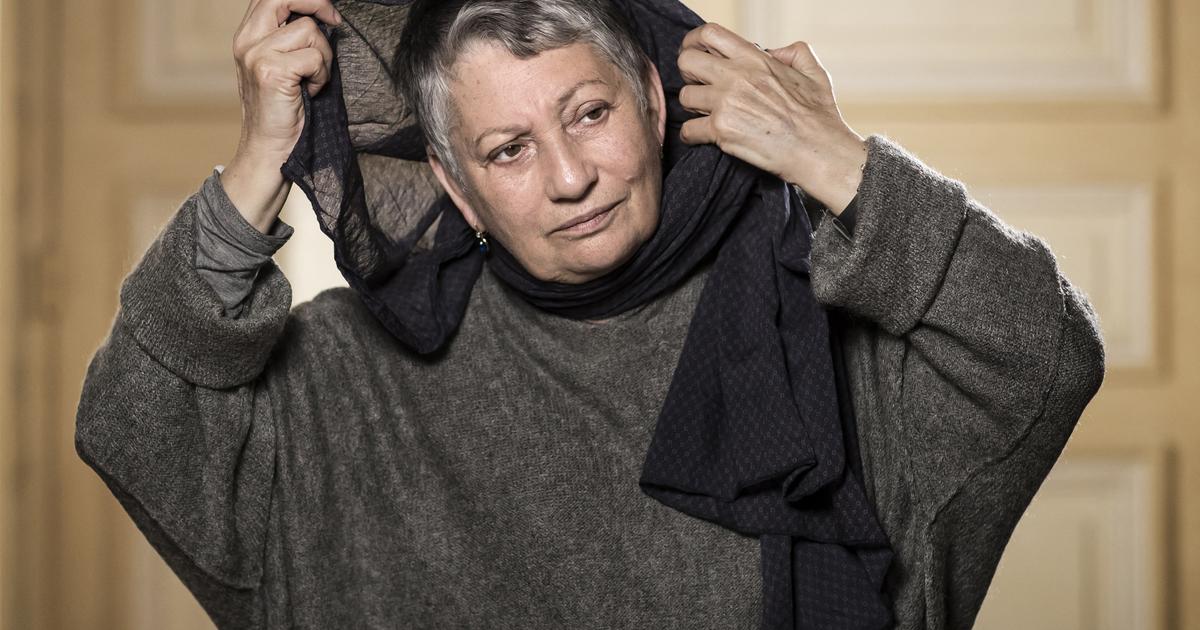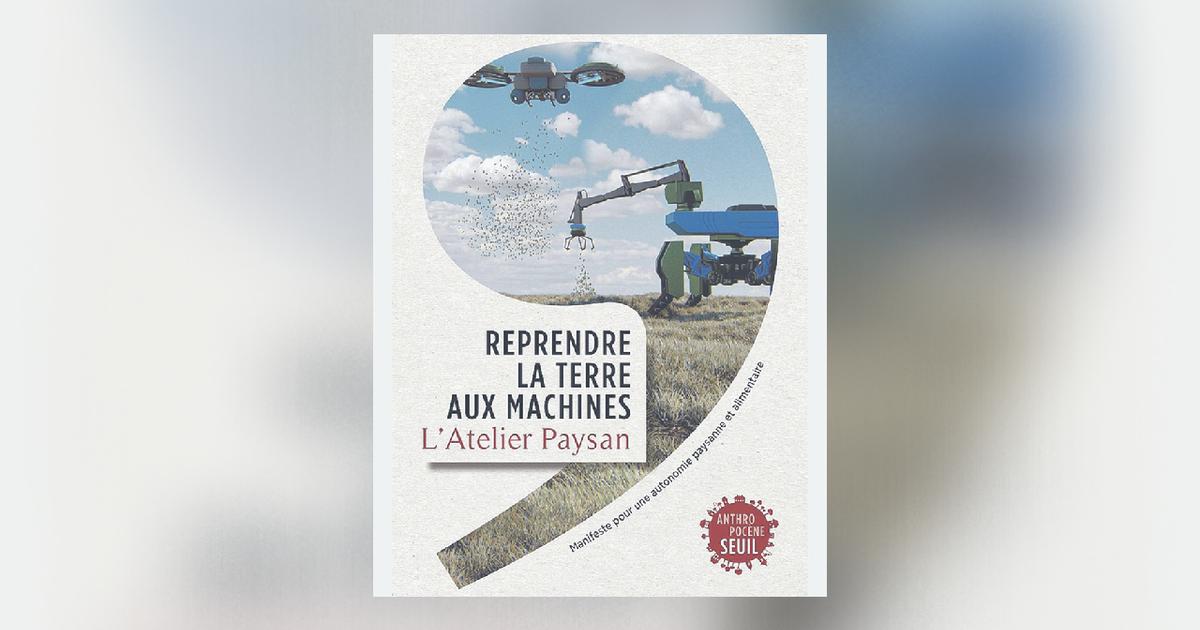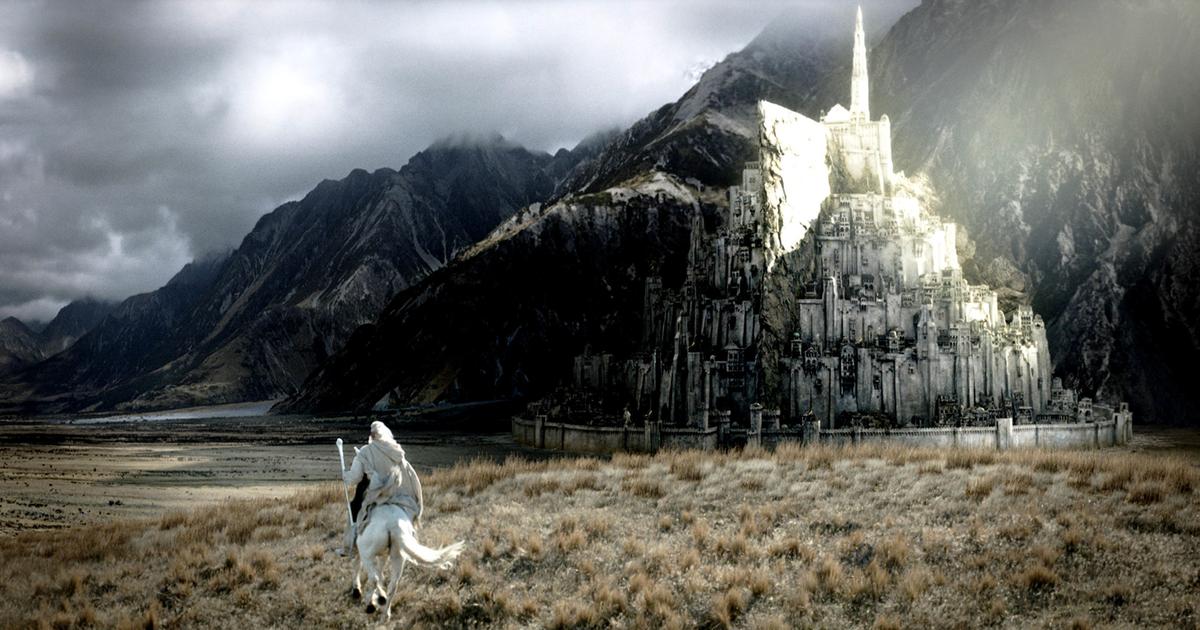On February 24, the attack of the Russian army on Ukraine began.
About 130,000 soldiers had been mobilized to the border, and just three days earlier the Kremlin had officially recognized two regions of eastern Ukraine as independent states.
The 2015 Minsk Protocol, which had tried to contain and stop the armed conflict in those regions through two agreements, was definitely a dead letter, the bombs were falling and the population was trying to get safe.
The apocalyptic scenes described by Serhiy Zhadan (Ukraine, 48 years old) in his novel
From the Orphanage
, originally published in 2018 and now published in Spanish by Galaxia Gutenberg, might seem like a chronicle of the desolate war landscape, but they are part of the plot imagined by this author of works of fiction and poetry collections as well as a musician, awarded with the prize of the peace of German booksellers at the latest edition of the Frankfurt Fair.
“We hired the book before February.
He is a well-known author and widely translated into German, ”explains editor Joan Tarrida.
“In contrast to nonfiction, novels like this allow you to go into detail in everyday life.
In these months the interest of the readers has grown and both agents and publishers have reacted, ”he admits.
The Ukrainian writer Serhij Zhadan in October 2022 in Frankfurt where he received the prize of the German booksellers at the book fair.RONALD WITTEK (EFE)
Indeed, beyond the press articles, the publishing sector has proposed to satiate the public's interest in the conflict and its background, in Ukraine and Russian imperialism, in its intricate and bloody history.
"The war has put Ukraine and Russia under the spotlight and that attention and interest have been channeled not only through political and analytical books, but also with new translations into different languages of literary works written by Ukrainian authors," he explained to the Rebecca Servadio, Managing Partner of London Literary Scouting, a leading
scouting agency,
with clients in 24 countries who are informed about titles and works that are published around the world.
“Our customers in Poland and Lithuania have been affected by the conflict quite directly and have tried to offer their help to Ukrainian publishers so they can move forward.
The wave of refugees has also increased the demand in those countries for books in Ukrainian, for the children who have arrived and also for adults”.
During the first months it was impossible to receive reading reports on what was being written and published because those who could do so had other emergencies to attend to, says Servadio.
He adds that so far this year they have studied about 50 titles, both fiction and non-fiction, related to Ukraine and the current crisis.
“The labels are cautious when it comes to publishing titles that are too close to the most immediate news.
That is why until now there have not been so many about the invasion itself, but rather about Russia, Putin, the oligarchs, who have worked well, and also about Zelensky, ”he points out.
One of the most recent novelties in the Spanish language has been precisely the book that brings together 16 speeches by President Zelenski,
A message from Ukraine
(Debate), a title that came out on the Anglo-Saxon market shortly after the start of the war.
Ukraine 22
(Alliance), by Francisco Veiga, is another of the books that appeared this fall, and in it the professor at the Autonomous University of Barcelona opted for what he defines as “historiographical reporting”.
Drawing on his fieldwork in Eastern Europe over the past few decades, Veiga delves into the war Ukraine is fighting today, going back to the one that began in 2014. “There is still a lot of information missing, and it will be years before we get it. , while other events, perhaps distant, will provide us with contrasts to understand what happened in Ukraine.
But for now, we historians can explain the trajectory traveled to reach the here and now, ”he writes in the introduction.
A train bound for kyiv at the Kherson station on November 23, 2022. ROMAN PILIPEY (EFE)
Borja Lasheras also looks back and speaks from his own experience at
Estación Ukraine.
The country that he was
(Books of the KO) to reconstruct, from his trip to kyiv in 2015, his close relationship with that country that was just beginning to emerge as a liberal democracy.
Lasheras traces a personal, literary and political history in which he goes through bars, streets, books and trains.
“I took to writing in journals while traveling in the Ukraine, driven by the need to collect things that had been transmitted orally and of which there was no written record.
I started without philias or phobias, I wanted to describe what I was seeing, and I filled in the gaps with good sources, ”he recalls.
“And when looking for a bibliography, to complete the story, I discovered the so-called 'Executed Renaissance', those authors from the 1920s in Ukraine.
There have been different moments of cultural explosion,
Married to a Ukrainian woman and in contact with a wide network of citizens of that country, Lasheras's book was inevitably touched by the conflict that broke out in February, as reflected in the epilogue,
Wasaps de guerra
.
Much more directly crossed by the conflict are the pages of Andrei Kurkov, another of the great names of the Ukrainian literary scene, than in
Diary of an invasion
(Debate) brings together his notes written in the two months prior to the attack, together with those he has taken since February.
“It is as much a private journal as it is my personal story of this war.
This is my story, that of my friends, that of my acquaintances and that of people I don't know, the history of my country”, says the author born in Leningrad, and concludes that this war has strengthened the national identity of his land.
The Russian threat and violent invasion was not unreasonable for the Ukrainians who knew their enemy well, but it was hard to believe what was happening and is still happening 10 months after the first attacks.
Victoria Belim (Victoria Frolova's pseudonym) was caught with her first book,
My Ukraine
(Lumen), just completed, and confesses over the phone from Brussels, the city where he has lived for years, that he never thought that the escalation of the war would tear apart the country in which he was born and lived until he was 15, when he emigrated after the fall of the USSR to Chicago.
“I have tried to explain the history of Ukraine from a personal perspective.
The catalyst was the diary I found of my great-grandfather, discovering that his sister had disappeared and that this matter was still a taboo in the family even though Stalinism had ended a long time ago”, he says.
"In 2014, with the separatist movements, there were deaths and disappearances again, I felt that history was repeating itself."
Her heated discussions with a brother of her father, a resident of Tel Aviv and defender of the USSR, also brought her closer to her country:
“My Soviet Union was the collapse of the 1980s and the Chernobyl disaster;
his, the
boom
of the fifties and the flight of Yuri Gagarin”, he writes.
All of this led her to investigate the complex relationship between Ukraine and her past, to visit her grandmother and spend long periods of time in kyiv.
From there came the book whose rights have been sold in 16 countries.
The Ukrainian writer Victoria Belim in the Cinquantanaire Park, in Brussels.
Delmi Alvarez
A stained glass window in
Lviv (Alliance), by Žanna Sloniowska (Lviv, 44 years old), has been another great success in the sale of rights.
The author includes a note prior to her novel in which she exposes how after the Russian attack "history interrupts again
A stained glass window in Lviv
as if he had never put an end to it”, and describes how he imagines his characters today now that the beautiful stained glass windows are covered again.
“It's tragic that a war had to break out for the richness of Ukraine's literary and art scene to come to light, but there has been a lot of talent there,” says Victoria Belim.
The photographer Yelena Yemchuk, who also emigrated to the US as a child, feels something similar.
She also rediscovered her land thanks to her grandmother and understood that it was there that she took the best pictures of her.
Odessa
(Gost) is the book that he had ready in 2020, which included his work there from 2015 to 2019 and that he had to delay due to the pandemic.
Finally, it was published in April and Yemchuk decided to donate 20% of the proceeds to an NGO that works in Odessa.
The book has been republished, and has become one of the best photographic titles of the year.
"It is the testimony of what life was like before," explained Yemchuk during a brief trip to Madrid.
“It is horrible to know that there is nothing left, that everything has been destroyed.
You are torn between moving on and thinking about what is happening.”
Subscribe to continue reading
Read without limits
Keep reading
I'm already a subscriber

/cloudfront-eu-central-1.images.arcpublishing.com/prisa/JDNG2AON3AXAUR7JQGVGQ72WKA.jpg)












